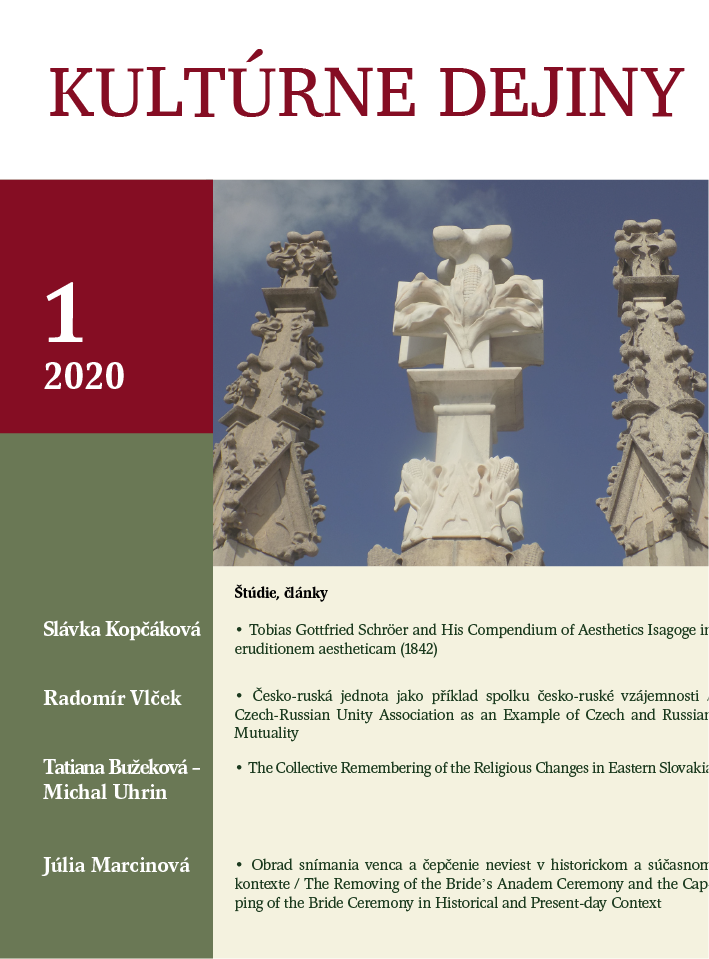Česko-ruská jednota jako příklad spolku česko-ruské vzájemnosti
Czech-Russian Unity Association as an Example of Czech and Russian Mutuality
Author(s): Radomir VlčekSubject(s): Pre-WW I & WW I (1900 -1919), Interwar Period (1920 - 1939)
Published by: VERBUM - vydavateľstvo Katolíckej univerzity v Ružomberku
Keywords: Societies; Czechoslovakia 1918 – 1938; Czech-Russian Union; Czech-Russian mutuality; Russian emigration to Czechoslovakia; T. G. Masaryk
Summary/Abstract: Russian, Belarusian and Ukrainian emigrants from the former Russian Empire formed an important part of the ethnically diverse society of interwar Czechoslovakia. They were mostly compelled to leave their homeland due to the major political changes that took place in Russia after the Bolshevik rise to power, Czechoslovakia becoming one of their most prominent destinations. The emigrant communities were, to an extent, closed up to the majority society, primarily because there was an expectation of the whole affair being short and temporary. Only some of them were willing to familiarize themselves with Czech culture and whereabouts and to spread awareness of Russian science and culture. One way or another, there was an ample amount of fellowships founded by the emigrants to promote Russian culture, science and art. One of the few fellowships to do so in order to open up to Czech environment and to introduce its members to the Czech cultural and scientific sphere was the Czecho-Russian Unity Association. It was founded as one of the earliest fellowships of its kind, tracing its origins back to April 1919. Its unique nature resided in the fact that it invited and accepted influential personas of Czechoslovak political and intellectual life as its members. Many of those put forth a considerable effort to maintain a financial support for further propagation of the idea of Czecho-Russian solidarity in both communities, as well as for the Association itself. The Czech-Russian Unity Association was also supported by leading Czechoslovak political institutions. For example, its library, first referred to as “Russian” and later, after a further thematic expansion of its book collection, as “Slavic”, was financed by subsidies from a fund of the Czechoslovak Ministry of Foreign Affairs. The paper proposes an analytic insight into the activity of the Russian emigrant fellowships in the interwar Czechoslovakia. At the same time, it is a contribution to the history of Czech-Russian relationships based on the definition of the particular activity of the fellowships. So far, historiography has been largely silent about this phenomenon.
Journal: Kultúrne dejiny
- Issue Year: 11/2020
- Issue No: 1
- Page Range: 34-55
- Page Count: 22
- Language: Czech

